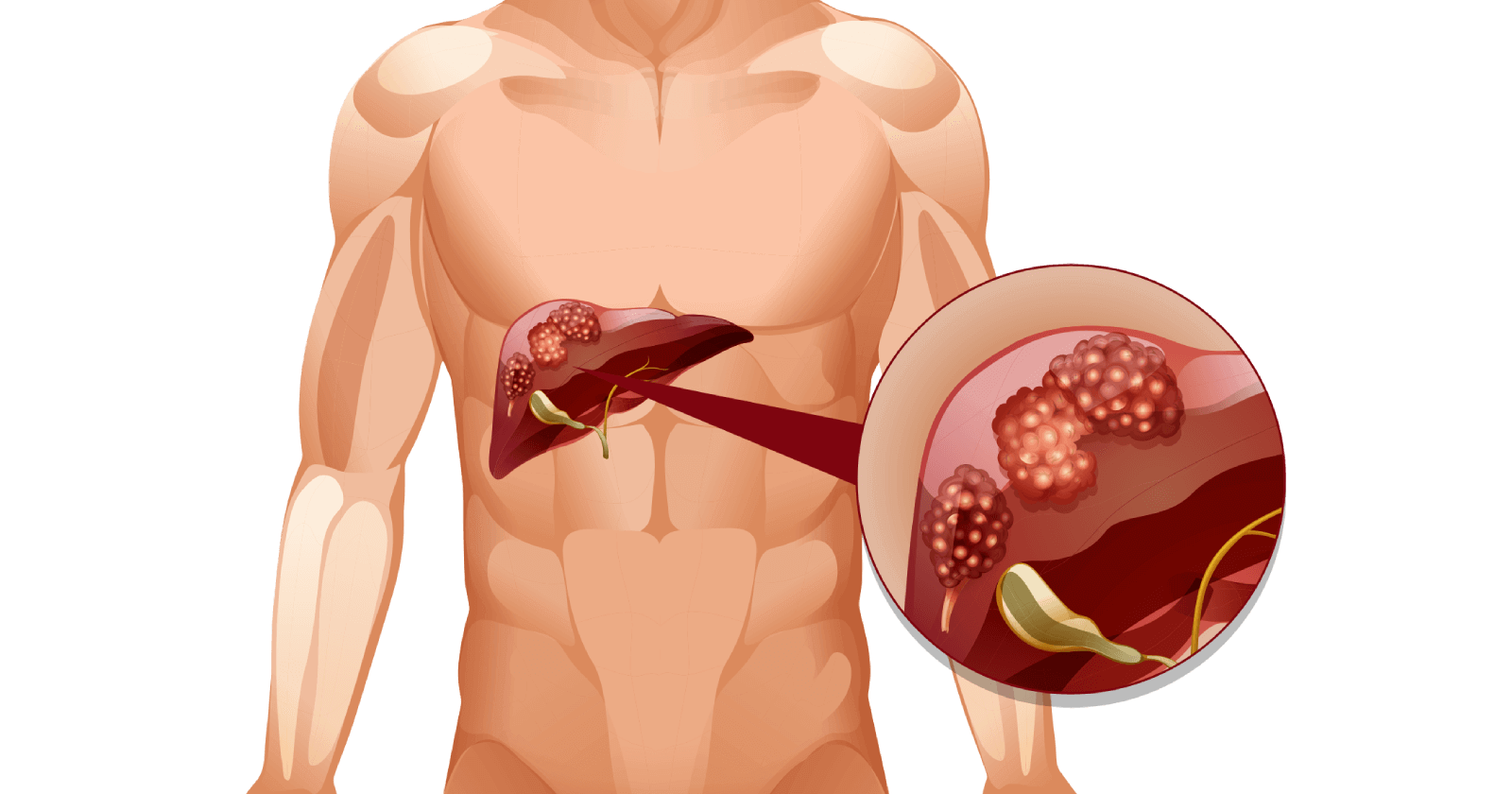Symptoms, and Treatment
Liver cancer is one of the most challenging forms of cancer, often developing quietly before showing any clear signs. It begins when abnormal cells form in the liver, a vital organ responsible for filtering blood, processing nutrients, and supporting digestion. As the disease progresses, it can disrupt these essential functions and lead to serious health complications.
In this blog, we’ll explore the key aspects of liver cancer—its causes, types, symptoms, and treatment options—to help you better understand the condition and the importance of early intervention.
Liver Cancer and Its Types
Liver cancer occurs when abnormal cells grow uncontrollably in the liver, forming a malignant tumour. It can significantly affect the liver’s ability to carry out vital functions such as filtering toxins, producing bile, and processing nutrients.
Liver cancer is broadly classified into two main categories based on where the cancer originates:
Primary Liver Cancer
This type begins in the liver itself. The most common form is Hepatocellular Carcinoma (HCC), which arises from the main liver cells known as hepatocytes. HCC is often linked to chronic liver conditions such as hepatitis B or C infections, cirrhosis, and long-term alcohol use.
Another less common form is Intrahepatic Cholangiocarcinoma, or bile duct cancer, which starts in the small bile ducts within the liver. Rare subtypes like hepatoblastoma (usually seen in children) and angiosarcoma also fall under primary liver cancers.
Secondary (Metastatic) Liver Cancer
In contrast, secondary liver cancer does not start in the liver. Instead, it spreads from cancers in other parts of the body—such as the colon, breast, pancreas, or lungs. Because the liver filters blood from much of the body, it is a common site for cancer to spread. Treatment in such cases typically focuses on the primary site of origin.
Identifying the type of liver cancer is a crucial first step in determining the appropriate treatment and predicting the likely outcome.
Causes and Risk Factors of Liver Cancer
Liver cancer often develops due to long-standing damage to the liver, though in some cases, the exact cause may not be clear. Understanding the factors that increase the risk of liver cancer can help with early detection and prevention.
- Chronic Hepatitis B or C Infections:
Long-term infection with hepatitis B or C viruses is one of the leading causes of liver cancer, especially hepatocellular carcinoma. These infections can cause inflammation and damage to liver cells over time. - Cirrhosis:
This condition results from long-term liver damage and scarring, often caused by hepatitis, alcohol abuse, or non-alcoholic fatty liver disease. Cirrhosis significantly increases the risk of liver cancer. - Excessive Alcohol Consumption:
Prolonged alcohol abuse can lead to liver damage and cirrhosis, making the liver more susceptible to cancerous changes. - Non-Alcoholic Fatty Liver Disease (NAFLD):
With rising rates of obesity and diabetes, NAFLD is becoming a more common risk factor for liver cancer, even in individuals who do not consume alcohol. - Family History and Genetic Disorders:
Inherited conditions like hemochromatosis (iron overload) or a family history of liver cancer can increase risk. - Exposure to Aflatoxins:
Aflatoxins are harmful substances produced by moulds found on stored grains and nuts. Long-term exposure can contribute to liver cancer in some regions. - Smoking and Environmental Toxins:
Tobacco use and exposure to certain industrial chemicals can also raise liver cancer risk.
While having one or more of these risk factors doesn’t guarantee the development of liver cancer, it does highlight the importance of regular screening and liver health monitoring in high-risk individuals.
Liver Cancer Symptoms to Watch Out For
One of the challenges with liver cancer is that in its early stages, it often doesn’t present with any noticeable symptoms. This can unfortunately mean that the condition isn’t detected until it’s more advanced. However, as the cancer progresses, certain signs and symptoms may begin to appear. It’s crucial to be aware of these potential indicators, although it’s equally important to remember that these symptoms can also be caused by other, less serious conditions. If you experience any of the 1 following, it’s always best to consult your doctor for a proper diagnosis.
- Unexplained Weight Loss: Losing a significant amount of weight without trying is a red flag for many types of cancer, including liver cancer.
- Loss of Appetite: Feeling less hungry than usual or a persistent lack of interest in food can be another indicator.
- Pain or Discomfort in the Upper Abdomen: This might be felt as a dull ache or a sharp pain, often on the right side, just below the ribs. The pain can sometimes radiate to the back or shoulder.
- Feeling Full Quickly: Even after eating a small amount of food, you might feel uncomfortably full.
- Nausea and Vomiting: Persistent feelings of sickness and bringing up food can occur.
- Jaundice: This is a yellowing of the skin and the whites of the eyes. It happens when the liver isn’t properly processing bilirubin, a substance produced when red blood cells break down. Jaundice can also cause dark urine and pale, chalky stools.
- Swelling or Fluid Build-up in the Abdomen (Ascites): The abdomen may become noticeably swollen due to a build-up of fluid. This can cause discomfort and a feeling of pressure.
- Fatigue and Weakness: Feeling unusually tired and weak, even after resting, is a common symptom reported by individuals with liver cancer.
- An Enlarged Liver: Your doctor might be able to feel an enlarged liver during a physical examination.
- An Enlarged Spleen: Similarly, the spleen, located on the left side of the abdomen, might also become enlarged.
- Itchy Skin (Pruritus): While less common, some individuals with liver problems, including cancer, may experience persistent itching.
Stages of Liver Cancer
The stage of liver cancer refers to how far the disease has spread and is a crucial factor in determining treatment options and prognosis. Staging helps doctors understand the extent of the cancer, the overall health of the liver, and whether the cancer has affected other parts of the body.
Stage 1 (Localized Tumor)
At this early stage, liver cancer is confined to a single tumour, and the liver’s function remains largely unaffected. There is a higher chance of successful treatment and potential cure, especially if the tumour can be surgically removed.
Stage 2 (Multiple Tumors or Invasion of Blood Vessels)
In this stage, there may be more than one tumour, but the cancer is still localized to the liver. It may involve small blood vessels, but there is no spread to other organs. Treatment options can still be effective, including surgery, liver transplant, or targeted therapies.
Stage 3 (Advanced Local Spread)
Stage 3 liver cancer involves larger tumours or the spread of cancer to nearby blood vessels, lymph nodes, or other tissues. The cancer is still confined to the liver, but treatment becomes more complex. Surgery may not be an option, and more aggressive therapies such as chemotherapy or radiation might be recommended.
Stage 4 (Metastatic Liver Cancer)
At stage 4, liver cancer has spread to other parts of the body, such as the lungs, bones, or other organs. This is the most advanced stage of liver cancer, and treatment focuses on controlling the spread and alleviating symptoms. While a cure is unlikely, palliative care and therapies to extend life and improve quality of life can still be beneficial.
Liver Cancer Treatment
Treating liver cancer depends on several factors, including the stage of the cancer, the overall health of the liver, and the patient’s overall health. Treatment options can vary from surgery to more advanced therapies such as targeted treatments, chemotherapy, and immunotherapy.
Surgical Options
- Liver Resection (Surgical Removal of Tumour):
If the cancer is confined to one area of the liver and the rest of the liver is functioning well, surgical removal of the tumour may be possible. However, only a small percentage of patients are eligible for this procedure due to the advanced nature of liver disease in many patients with liver cancer. - Liver Transplantation:
For patients with early-stage liver cancer and underlying cirrhosis, a liver transplant may offer a chance for a cure. A transplant removes both the cancerous liver and the damaged tissue, replacing it with a healthy liver from a donor.
Non-Surgical Options
- Ablation Therapy:
This includes techniques like radiofrequency ablation (RFA) and microwave ablation (MWA), which destroy the tumour using heat. These options are often recommended for patients who are not candidates for surgery. - Transarterial Chemoembolization (TACE):
TACE is used for patients with advanced liver cancer. It involves delivering chemotherapy directly to the tumour site through the blood vessels, cutting off the tumour’s blood supply while also releasing chemotherapy drugs. - Targeted Therapy:
Targeted drugs focus on specific molecules involved in the growth and spread of cancer cells. These therapies can be effective in treating certain types of liver cancer, especially when the cancer cannot be surgically removed. - Immunotherapy:
Immunotherapy helps stimulate the body’s immune system to recognize and attack cancer cells. This approach is being increasingly used in liver cancer treatment, especially for advanced cases. - Chemotherapy and Radiation Therapy:
Although not always effective in liver cancer, chemotherapy may be used to shrink tumours or manage symptoms. Radiation therapy can help relieve pain or discomfort caused by the tumour.
Palliative Care
For patients with advanced liver cancer, palliative care focuses on relieving symptoms and improving quality of life. This can include pain management, nutritional support, and psychological care.
Last Word
Early diagnosis and timely treatment play a vital role in improving outcomes for liver cancer patients. With advancements in medical technology and a multidisciplinary approach to care, many patients can manage the disease effectively. If you or a loved one are seeking expert care for liver cancer, there are several reputable liver cancer hospitals in Gurgaon that offer advanced treatment, compassionate care, and personalised support for every stage of the condition. Consulting an experienced oncologist in Gurgaon can also help guide you through diagnosis, treatment planning, and ongoing management of the disease.



































